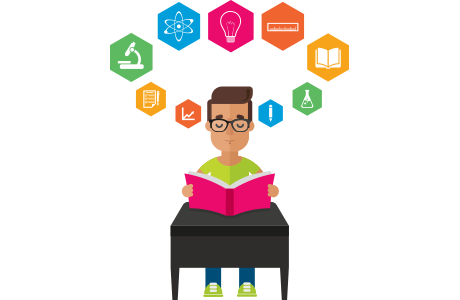In today’s fast-paced world, the ability to learn and adapt quickly is a valuable asset. Whether you’re aiming to advance in your career, pick up a new hobby, or simply expand your knowledge, the concept of “focused learning” can significantly enhance your learning journey. In this article, we’ll delve into what focused learning is, why it matters, and how you can harness its power to master skills efficiently.
Understanding Focused Learning
Focused learning is a purposeful and concentrated approach to acquiring knowledge and skills. Unlike traditional learning methods that might involve multitasking or juggling multiple subjects at once, focused learning centers around dedicating your full attention and energy to a single task or subject. This deliberate practice enables deep understanding, retention, and mastery of the material.
The Importance of Focused Learning
- Enhanced Concentration: Focused learning demands your complete attention. By eliminating distractions and immersing yourself in the subject matter, you’re better able to comprehend complex concepts and intricacies.
- Efficient Time Utilization: When you focus on one thing at a time, you can optimize your time and avoid the mental strain that comes with constant context switching. This efficiency translates to quicker skill acquisition.
- Improved Retention: The focused approach allows information to move from short-term to long-term memory, making it more likely that you’ll remember and apply what you’ve learned.
- Better Problem Solving: Deep engagement with a subject exposes you to various scenarios and challenges. This enables you to develop strong problem-solving skills within that domain.
- Reduced Stress: Focused learning reduces the feeling of overwhelm that often comes from trying to tackle multiple subjects simultaneously. This, in turn, leads to reduced stress and a more positive learning experience.
Strategies for Effective Focused Learning
- Set Clear Goals: Define what you want to achieve through focused learning. Having specific goals helps you direct your efforts and measure your progress.
- Prioritize and Sequence: Identify which skills or topics are most important and prioritize them. Create a sequence that logically builds upon previous knowledge.
- Create a Distraction-Free Environment: Choose a quiet, clutter-free space to minimize distractions. Turn off notifications and commit to staying focused during your learning sessions.
- Time Blocking: Allocate dedicated time slots for focused learning in your schedule. Avoid multitasking during these periods to ensure deep concentration.
- Active Learning Techniques: Engage actively with the material. Take notes, ask questions, and discuss concepts with others to reinforce your understanding.
- Regular Breaks: Breaks are essential to prevent burnout. Incorporate short breaks during your learning sessions to recharge your mind.
- Review and Reflect: Periodically review and reflect on what you’ve learned. This aids in consolidating knowledge and identifying areas that need further exploration.
- Practice, Practice, Practice: Apply what you’ve learned through practical exercises or real-world scenarios. Practice is key to internalizing skills.
Focused learning is a powerful tool that can transform your learning journey from fragmented to purposeful. By honing your ability to concentrate deeply on a single subject, you can enhance your understanding, retention, and mastery of skills. Remember that the path to expertise is paved with deliberate practice and unwavering focus. So, whether you’re striving for professional growth or personal enrichment, embrace the concept of focused learning and unlock your full potential.



